
While the outside of a ripe kiwi is a soft shade of camel brown, the bright green flesh can also turn brown when exposed to oxygen. Once fruit that contains an enzyme called polyphenoloxidase -- such as kiwi, bananas and apples -- exposes its naked flesh to oxygen, oxidation sets in. Oxidation is a chemical reaction that produces compounds that give some fruits a brownish color after their cellular membranes have been damaged due to cutting or peeling.
An Ounce of Prevention
Some acids, such as citric and ascorbic, can help prevent fruit from turning brown by grabbing oxygen molecules before the fruit can be fully exposed to them. This delays the oxygen from reacting with the enzymes in the kiwi, apple or other polyphenoloxidase-containing fruit. Brush or coat freshly cut fruit with lemon or lime juice, or submerge the fruit in water to delay browning.
Related Articles

How to Remove Scars Caused by Insect ...

Why Pears Turn Brown When Pureed
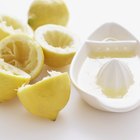
Why Does Lemon Juice Stop Apples From ...
Does Baking Soda Prevent Apples from ...
How to Keep Peach Preserves From ...

How to Store Apples

What Happens to Bananas Dipped in Lemon ...
How to Wash Fresh Fruit With Peroxide
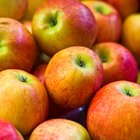
Calories in an Ambrosia Apple

Nutrition Information on Blueberries
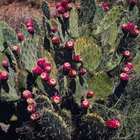
How to Freeze a Prickly Pear Cactus

Does Baking Soda Prevent Apples from ...

Is an Orange Healthy to Eat for Your ...
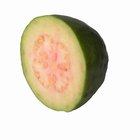
How to Peel Guava
How to Keep Granny Smith Apples From ...
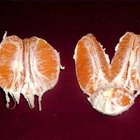
Information About the Orange Fruit

What Foods Provide Calcium D-Glucarate?

How Fast Does it Take for Apples to Rot?

Calories of Tuna in Sunflower Oil
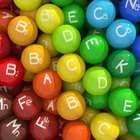
What Vitamins Help the Liver?
References
Writer Bio
When not working in her family-owned food and bar business, Viola Horne can almost always be found with a cookbook in one hand and a whisk in the other. Horne never tires of entertaining family and friends with both comfort food and unusual delicacies such as garlic cheese smashed potatoes and banana bacon pancakes.
Photo Credits
Siri Stafford/Photodisc/Getty Images